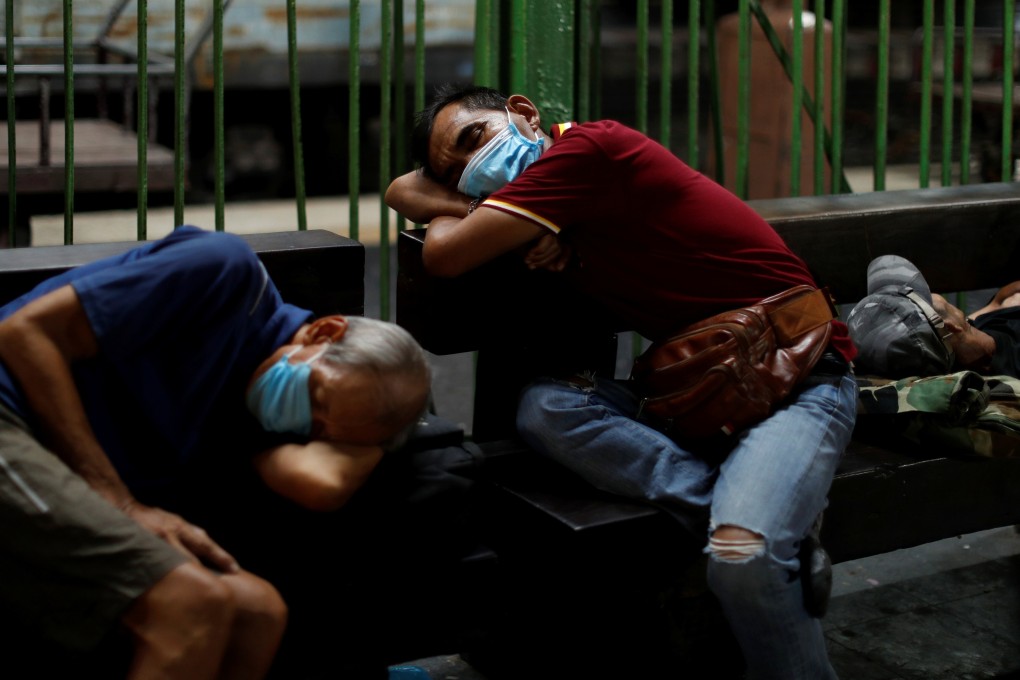Coronavirus: Bangkok’s lockdown, curfew leave vulnerable Thai residents struggling
- Even as the government has initiated cash handouts, some workers are falling through the cracks
- Meanwhile, Bangkok’s nightly curfew is leaving the homeless and those unable to pay their rent with nowhere to go

The situation has become not only dire, but also complicated. Gae’s husband will not be eligible to receive the government cash handout initiated this month because he is technically still employed and thus covered by social security. “I’m taking it one day at a time, like the daily count of coronavirus infections,” she said.
More than 24 million Thais registered to receive the monthly handout of 5,000 baht (US$155) over six months. The funds will roll out for the first recipients on April 8. The scheme is for temporary or contract employees or self-employed workers who are not covered by the social security system, Deputy Prime Minister Somkid Jatusripitak said. Later, the social security office confirmed furloughed workers are eligible for temporary financial support.
But as the pandemic intensifies and a nationwide 24-hour curfew could soon become a reality, the government on Tuesday announced a fresh stimulus package of 1.9 trillion baht (US$58 billion), roughly over 10 per cent of the country’s GDP, that would cover soft loans, support for corporate bonds and other relief measures as the country heads into an economic recession.